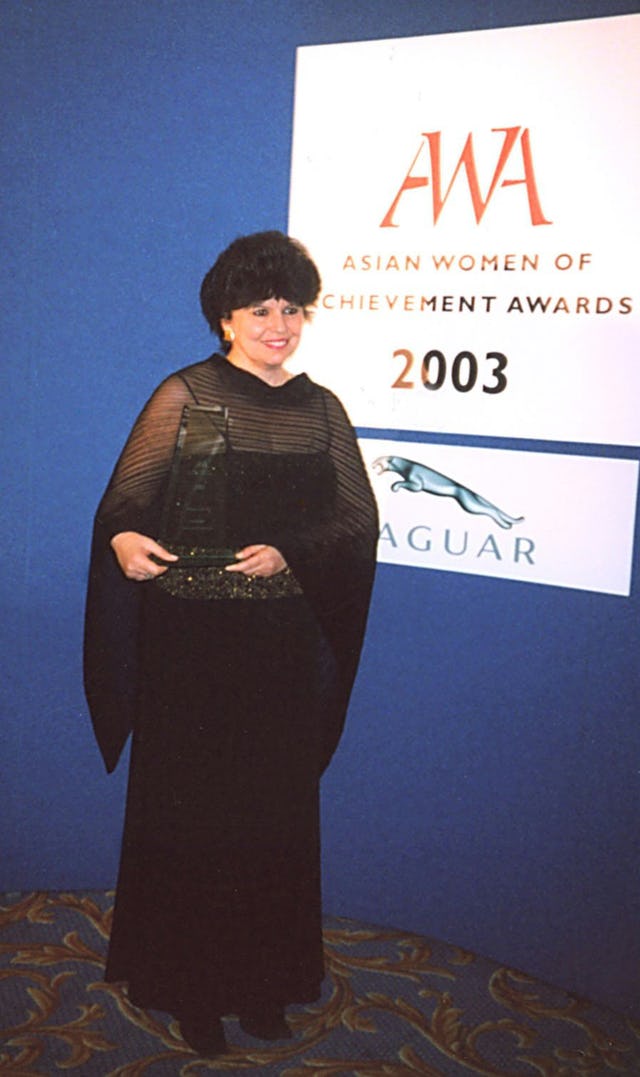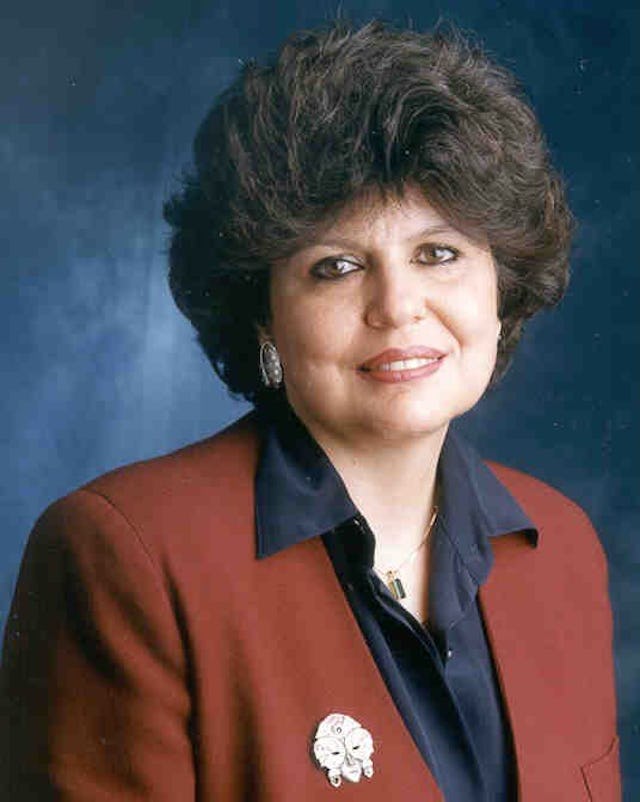Award winner links science and spirituality
LONDON — A British neuroscientist who has received a major award says there is a connection between her spiritual beliefs and her understandings of the workings of the human brain.
Professor Faraneh Vargha-Khadem outlined her views in an interview after being named Professional of the Year in the Asian Women of Achievement Awards 2003.
She received her award on 8 May 2003 from one of the award's patrons, the eminent lawyer Cherie Booth, who is the wife of British Prime Minister Tony Blair.
Professor Vargha-Khadem, a member of the Baha'i Faith, said that as a neuroscientist she came to recognize the significance of the Baha'i teachings on the brain, the mind and spirituality.
"With more experience, I recognized their interconnection," said Professor Vargha-Khadem, head of the Developmental Cognitive Neuroscience Unit at the Institute of Child Health at University College London.
"I became aware of how the working brain is a reflection of the individual's unique spiritual endowments.
"As we learn more about the way the brain functions and the mind operates, we see more and more distinctions between the mind of the human being and the mind of the animal, and these distinctions are really of a spiritual nature.
"Our differences, even though they may have a biological basis, really are a reflection of something that is inherent to the capacity of the human mind, which is a reflection of a spiritual being."
A consultant in neuropsychology at the Great Ormond Street Hospital for Children, Professor Vargha-Khadem recently published the results of research on how brain damage can lead to serious anti-social behavior in puberty and adulthood.
Her research in collaboration with a team of scientists has culminated in the discovery of the first gene associated with speech and language.
Further recent work on childhood amnesia has drawn international recognition and has led to new models of how the brain stores and retrieves different types of memories.
Born in Iran, Professor Vargha-Khadem completed her studies in 1979 at McGill University in Montreal and the University of Massachusetts. In 1983 she took up a faculty research position at the Institute of Child Health in London, where she has been working ever since.
Professor Vargha-Khadem comes from a distinguished Baha'i family. Her father, Dr. Ali-Muhammad Varqa, is a Hand of the Cause, an appointment of high spiritual rank in the Baha'i Faith.
The Asian Women of Achievement Awards, sponsored by major corporations, were launched in 1999 to recognize the accomplishments and contributions that Asian women have made to wider society in the United Kingdom. There are eight categories.
Award judge Professor Brian Gazzard, of Chelsea and Westminster Hospital, stated: "Professor Vargha-Khadem's achievements are truly outstanding both in the field of science and in the field of understanding the importance of mental health to child development."
"This award is significant for two reasons," Professor Vargha-Khadem said, "firstly because it recognizes the contribution of women but also those of ethnic minorities."
The Asian Women of Achievement Awards acknowledge the individual efforts and the accomplishments of Asian women working in the commercial, professional, artistic and humanitarian sectors in the United Kingdom.
The shortlist for Professional of the Year section of the awards also included an educational economist, a pediatric surgeon, and a film producer who is a women's rights activist.

